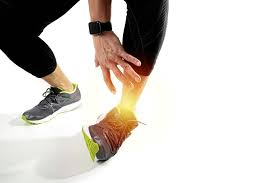
Our resources for you:
Immediate Treatment of Ankle Sprains: Click HERE
Ankle Sprains in Soccer: Click HERE
Ankle sprains can occur simply by rolling your ankle on some unstable ground. Most commonly rolling your foot inwards strains or tears the ligaments on the outside of your ankle (lateral ankle sprain). This can occur when awkwardly planting your foot when running, landing unbalanced from a jump or stepping onto an irregular surface. Essentially, ligaments are overstretched.
Ankle sprains vary in their severity, from mild ‘twisted ankle’ or ‘rolled ankle’ sprain through to severe complete ligament ruptures, avulsion fractures or broken bones. Despite most people being told to simply ‘rest’ and it will recover, even mild sprains often result in joint stiffness, ligament laxity, muscle weakness or tightness plus reduced proprioception (balance and joint awareness).
Hence the need for proper treatment and rehabilitation regardless of the severity of the injury.
How can we help?
Physiotherapy involves hands on treatment from the beginning of the injury. The sooner you start treatment the better the outcome.
The aims of treatment include:
- injury protection (strapping, kinesiology taping), pain relief and inflammation control
- regain full range of motion through manual therapy
- strengthen your ankle and calf muscles
- restore joint proprioception and balance, using balance mats and wobble boards
- restore normal function speed and agility
- sport-specific skills
- graduated return to training
- return to competition.
There is no specific time frame for the recovery of sprained ankles, although its known that ligaments take at least 6 weeks to heal; however, your muscle strength, the range of motion, proprioception and return to function can vary considerably. So recovery can take anywhere from 3 to 6 weeks for a mild or moderate sprain but up to 3 months or more for a severe injury. Your progression through rehabilitation exercises will be carefully monitored as attempting to progress too soon can lead to re-injury and the frustration of a delay in your recovery.










